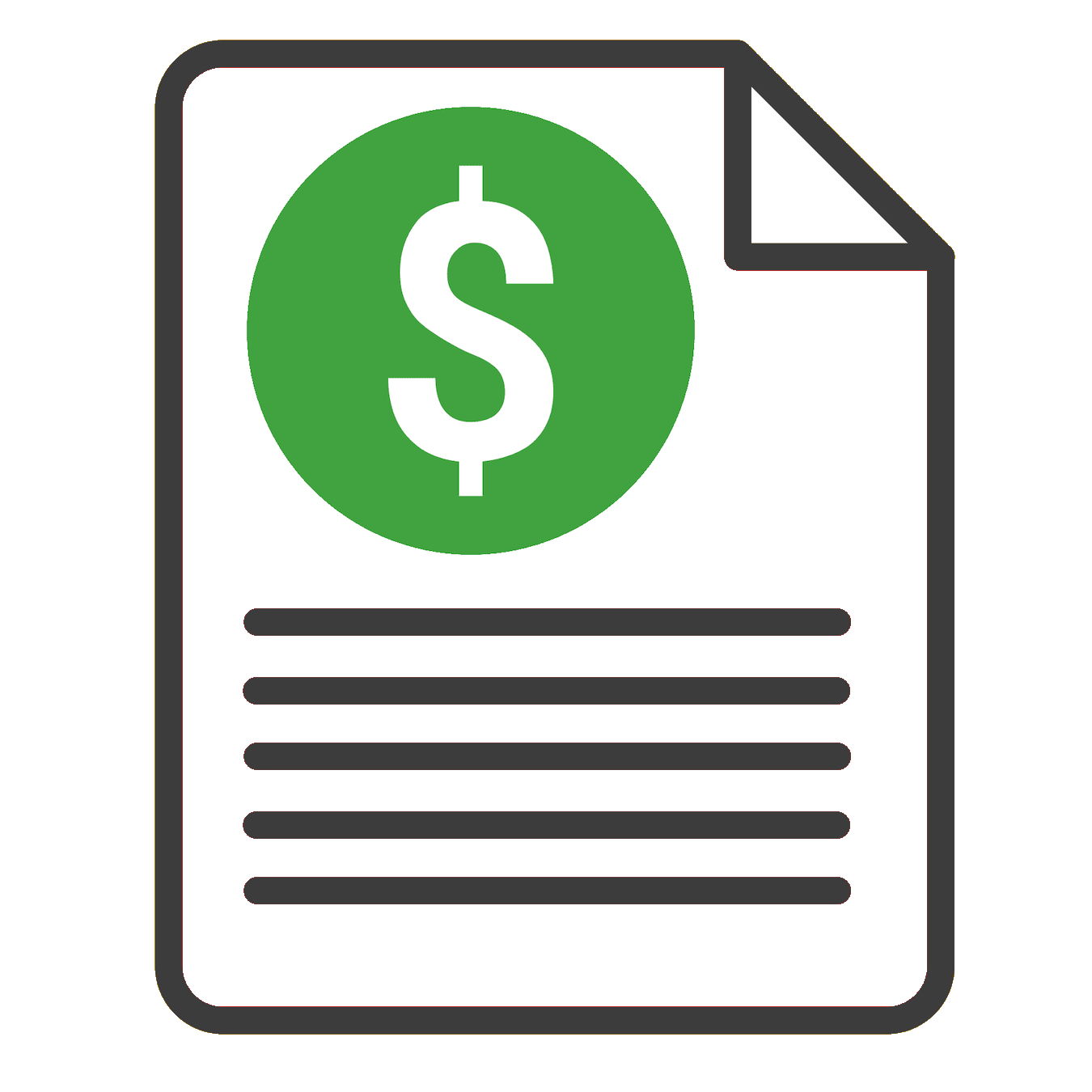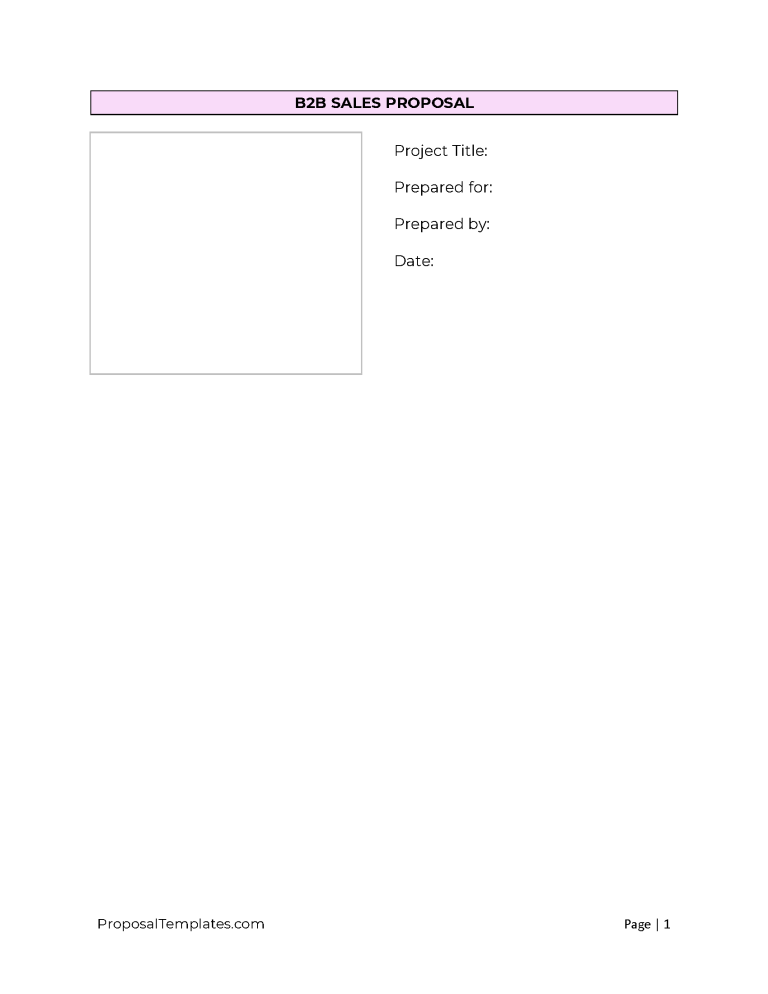A B2B sales proposal presents the services or products available from one business to another. The proposal will feature the company’s products, services, or subscriptions with the hope of effecting a sale or initiating a contract.
Types of B2B Proposals (14)
- Consulting Proposal – A proposal sent to companies that require advice and strategies for their current operations or projects.
- Contract Proposal – Proposals seeking a specific agreement or contract, thus promoting the B2B sales company’s preferred terms and conditions.
- Customized Sales – A proposal geared to a specific client, thus emphasizing the client’s criteria to be met.
- Formal Proposal – A formal document inviting one business to purchase products or services from another.
- Joint Venture or Partnership – A proposal where one business invites another to combine resources with a specific goal.
- Products/Service Overview – This proposal provides a comprehensive but attractive discussion of a B2B sales company’s available products or services.
- Renewal – The proposal encourages clients to renew ongoing service, a subscription, or a contract rather than letting it expire.
- Request for Proposal (RFP) Response – Proposals a business uses to seek a specific product or service from another.
- Sales Pitch Deck – Proposals designed to be engaging because they are delivered via in-person or online service (i.e., Zoom).
- Solicited Proposals – B2B sales companies compose this proposal in response to a client’s inquiry while promoting its products or services.
- Subscription or Service Agreement – Proposals selling an ongoing service, thus presenting pricing plans, support features, and similar client concerns.
- Technical Proposal – Proposals strictly for technical services or equipment and covering topics such as support and user experience (UX).
- Unsolicited Proposals – A proposal proactively written to initiate client contact and showcase an excellent client analysis section and sales pitch.
What Should Be Included (9 Items) |
1. Introduction To B2B Company
Begin by familiarizing the potential B2B client with the sales company as well as the products or services being offered. Provide a discussion on the benefits of using the B2B sales company while providing incentives and promotions.
Salutation, Company Name, Contact Information
Purpose, Acknowledgment
Proposal’s Benefits
Brief Proposal Outline
- Gratitude
2. B2B Client Needs
Produce the results of the client analysis as well as provide a history of the client’s company. Show the B2B sales client a clear understanding of the challenges faced with the current competitive landscape and current vendors.
Client Needs, Problem Statement
Impact, Root Cause Analysis
Client’s Goals and Objectives. Timeline, Priority
Concerns and Constraints, Stakeholders
Previous Attempts/Solutions, Alignement With Client Needs
3. Proposed Solution
Explain how the B2B sales company can solve the current challenges faced by the client with their services or product. Make this an attractive solution by addressing topics such as cost savings and ongoing benefits for the client.
Solution, Product/Service Description
Customization Options, Value Proposition
Scenarios, Technical Specifications
Integration Capabilities, Scalability
User Experience (UX), Timeline
4. Benefits To B2B Company’s Products/Services
Continue the discussion on the benefits with relevant scenarios and specific examples. Additionally, use this area to inform the client of any available promotions or long-term service/product plans.
Scalability, Flexibility, Graphics
Client-Centric Approach, Savings (Time, Resources)
Quantifiable Outcomes, Client Goal Alignment
Positive ROI, Short/Long-Term Benefits
Risk Mitigation, Customer Experience
5. Pricing
Dispense a total estimate for the B2B seller’s solutions together with a transparent record of every contributing cost or expense. Also, if applicable, present the payment plans, options, and terms.
Pricing Structure, Details, Payment Terms
Discounts, Promotions, Contract Length, Renewal Options
Price Guarantee, Total Cost of Ownership (TCO)
Billing Process, Available Services, All Costs, Taxes
Terms and Conditions, Total Price
6. Timeline
Produce the schedule for the B2B seller’s deliverables (i.e., products, samples, services). Additionally, dispense relevant programs or dates like those for meeting schedules and implementation phases.
Project Start Date, Phases, Description
Duration, Dependencies, Interactions
Client Responsibilities. Review/Approval Schedule
Testing, Quality Assurance, Go-Live Date
Buffer, Communication, Reporting
7. References And Case Studies
Display the sales company’s references as well as relevant success stories because it promotes client confidence in the B2B vendor. With this in mind, furnish any testimonials or positive media mentions relevant to the client’s industry.
Case Studies (Problem Statement, B2B Solution)
Client References, Contact Information
Testimonials, Recommendations/Endorsements
Industry Status, Awards, Public Recognition
Confidentiality Statement, Permissions
8. Terms And Conditions
Give the B2B client all the terms and conditions of the seller’s products or services. In fact, make sure every legal agreement, waiver, non-disclosure, or waiver requiring client acknowledgment is available for review.
Payment Terms, Pricing, Delivery/Shipping
Product/Service Specs, Warranties, Guarantees
Returns/Refunds, Intellectual Property Rights, Intellectual Property Rights
Confidentiality, Non-Disclosure, Termination
Dispute Resolution, Force Majeure, Insurance, Compliance
9. Call To Action
Compose a final statement on the benefits of the B2B sales company with marked enthusiasm. Finally, invite the B2B client to contact the company for more information or a sales contract.
Instructions, Contact Information, Deadline
Confirmation Request, Additional Information
Reiterate Value, Expression Of Enthusiasm
Gratitude, Signature Line, Attachments, Follow-Up Plan
Compliance Statements

